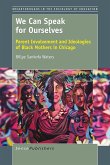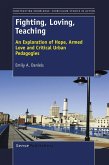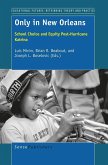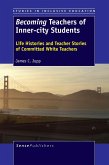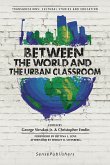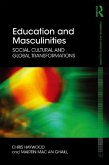"When Pulitzer Prize nominated author Richard Rodriguez published his autobiography, Hunger of Memory: The Education of Richard Rodriguez in 1982, he received much criticism due to his views on issues such as assimilation, bilingual education, and affirmative action. Polemically, since Rodriguez's publication, a book length revisiting of some of his ideas is for the most part non-existent.
Inspired by Rodriguez's work, Barrio Nerds: Latino Males, Schooling, and the Beautiful Struggle presents a compelling window into the schooling trajectories of Latino males, while also providing critical and alternative views. These portraits of working-class students and academics that achieved academic success move beyond clean victory narratives and thus complicate our notions of "success" and "rising up." Blending versus separating the exploration of street kid/school kid identities, we get a glimpse into the merging and collision of multiple cultural worlds in ways that are liberating and often painful and full of ambivalence. Additionally, we get provocative takes on giftedness, the philosophical and political dimensions of "home," and masculinities.
Ultimately, Barrio Nerds: Latino Males, Schooling, and the Beautiful Struggle is a reminder of how academic achievement is often embedded in gain and in loss and it is a thoughtful meditation on how many Latino males of working-class origins do not reject the past, but instead use this precious knowledge to holistically live out the present."
Dieser Download kann aus rechtlichen Gründen nur mit Rechnungsadresse in A, B, BG, CY, CZ, D, DK, EW, E, FIN, F, GR, HR, H, IRL, I, LT, L, LR, M, NL, PL, P, R, S, SLO, SK ausgeliefert werden.
Es gelten unsere Allgemeinen Geschäftsbedingungen: www.buecher.de/agb
Impressum
www.buecher.de ist ein Internetauftritt der buecher.de internetstores GmbH
Geschäftsführung: Monica Sawhney | Roland Kölbl | Günter Hilger
Sitz der Gesellschaft: Batheyer Straße 115 - 117, 58099 Hagen
Postanschrift: Bürgermeister-Wegele-Str. 12, 86167 Augsburg
Amtsgericht Hagen HRB 13257
Steuernummer: 321/5800/1497
USt-IdNr: DE450055826
Bitte wählen Sie Ihr Anliegen aus.
Rechnungen
Retourenschein anfordern
Bestellstatus
Storno




